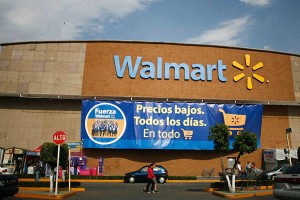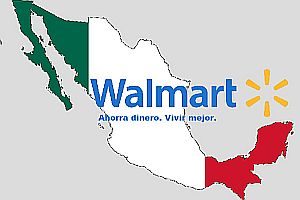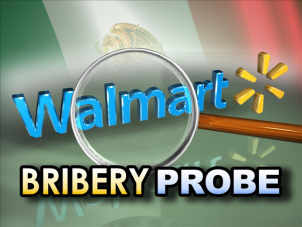In November 2011, Wal-Mart Stores Inc. informed federal agencies that it was conducting an internal investigation into allegations involving a Mexican bribery scandal.
While the internal investigation and its related activities have cost Wal-Mart at least $230 million through April 27th of this year, the move was the right one, according to legal experts who follow Foreign Corrupt Practices Act (FCPA) enforcement.
But whatís not widely known is that the Department of Justice (DOJ) and the Securities and Exchange Commission (SEC) allow corporations ó or, rather, strongly encourage them ó to hire their own investigators to look into allegations of violations of the FCPA and other wrongdoing. Some of Wal-Martís lucrative investigative work is being done by the Little Rock law firm of Mitchell Williams Selig Gates and Woodyard.
 |
In many cases, the findings of those internal investigations are then handed over to the DOJ and SEC, which can then use the findings as a basis for a possible settlement.
The practice, though, has its critics. "Itís fundamentally an unfair system," said Russell Mokhiber, editor of the Corporate Crime Reporter, a weekly newspaper headquartered in Washington, DC.
By conducting their own investigations, corporations are able to dodge prosecution and get off with light fines when individuals might not be given that luxury, he said. Prosecutors take into account the collateral damage that might be done to shareholders when considering charges, Mokhiber said.
"Most Americans are very upset that there hasnít been one prosecution of a major Wall Street bank or executive from a major Wall Street firm in connection with the 2008 financial fraud-induced collapse," Mokhiber said." It undermines equal justice for all. Thereís one system for corporations and one for the rest of us."
Others agree that questions concerning conflict of interest arise when corporations hire attorneys to handle work that federal agents should be doing. "It is a legitimate concern that the government may rely too much on the companyís internal investigation, which could slant the information to protect current management," Peter Henning, a professor of law at Wayne State University Law School in Detroit said.
The DOJ and the SEC allow the companies to handle the internal investigations because the government doesnít have the resources to conduct them, said Mike Koehler, an assistant professor at Southern Illinois University School of Law and the founder and editor of the legal blog FCPA Professor. At least one hundred-fifty companies are facing FCPA scrutiny, Koehler said.
 |
It is difficult to say what the outcome will be for Wal-Mart in the FCPA case, which could drag on for years.
Itís "very, very unlikely for Wal-Mart to be criminally charged in this case," Koehler said. He said that if Wal-Mart does settle for a fine, it probably wonít even make the top 10 FCPA fines. The record was set in 2008 when Siemens AG, a German firm that is one of the largest electronics and electrical engineering companies in the world, agreed to a settlement of $800 million.
Mokhiber said he thinks the Justice Department might actually come down hard on Wal-Mart because of the scrutiny the case has received.
A DOJ spokesman referred questions about its practices to its website. And Wal-Mart didnít respond to emailed questions.
$24 Million in Bribes Alleged
In April 2012, The New York Times reported the details that alleged Wal-Martís Mexican division paid more than $24 million in bribes so stores could be opened faster than if the company had gone through normal government channels.
Wal-Mart Mexico "had taken steps to conceal the payments from Wal-Martís headquarters in Bentonville," according to the Times article.
The article also said Wal-Mart learned of the allegations in 2005, but didnít pursue them. The article was the basis for several lawsuits filed by shareholders.
Wal-Mart said in a news release in April 2012 that it had been working on compliance with the FCPA and had "a rigorous process in place to quickly and aggressively manage issues like this when they arise."
"We will not tolerate noncompliance with FCPA anywhere or at any level of the company," the news release said. "We are confident we are conducting a comprehensive investigation and if violations of our policies occurred, we will take appropriate action."
How the Investigations Work
 |
Itís unclear what Wal-Martís investigation involves, but a companyís internal investigation is usually conducted by outside lawyers and accountants. Their goal is to determine what happened by interviewing employees and anyone who might have been involved, Henning, of Wayne State University Law School, stated.
"The hope is that the company will find out about all the possible wrongdoing and report that to the government," Henning said.
The faster the company conducts its investigation, and shows that it has changed its ways, the cheaper it will be for the firm, said Bud Cummins, general counsel for the Circumference Group of Little Rock and the former United States Attorney for the Eastern District of Arkansas.
By cooperating with the government, the company will possibly see a reduced fine, if one is called for, because the government didnít have to work so hard to get the information, Cummins said.
The DOJ said on its website that it takes into account when determining a punishment whether the corporation made "a voluntary and timely disclosure" and its willingness to provide information and evidence in a case of wrongdoing.
In addition, the company can complete an investigation in an FCPA case faster than the government possibly could.
"In an FCPA investigation more likely than not all of the relevant documents, evidence, and witnesses are located in foreign countries," Koehler said. "When the DOJ and the SEC go looking for evidence in foreign countries, they are, with good reason, subject to a whole host of legal impediments and roadblocks."
If the DOJ gets wind of an alleged criminal activity, however, it will inform the company, said Daniel Richman, a professor of law at Columbia Law School in New York and a former Assistant US Attorney in New York.
"They wonít demand that the firm hire a particular outside counsel, but the firm will know it has to," he said. "I mean weíre dealing with very sophisticated players here. And it will be a very good signal that the companyís trying to cooperate with the government."
 |
While the government is interested in what happened in the past, the internal investigation also will show whether the companyís internal controls were ineffective and need to be changed to prevent a violation from recurring, Koehler said.
Avoiding Conflicts
When a company hires a law firm to police itself, questions are invariably raised about conflict of interest.
"A conflict of interest is inherent in any internal inquiry, but measures can be, and usually are, taken to mitigate the conflict," Richman said.
The internal investigation is usually led under the direction of independent board members, Richman said. In Wal-Martís case, the Audit Committee of its board of directors is conducting the investigation.
Another corporate strategy is to hire a firm that has a reputation for conducting extensive and complete investigations with integrity, Richman said. "And thatís why youíll often find these investigations are conducted by former prosecutors who have a degree of credibility with the government," he said.
In 2012, Wal-Mart named Tom Gean, who has worked for the company since 2004 and was a former US Attorney, as its global FCPA compliance officer. It also hired the law firm of Jones Day of Washington, DC, which has offices around the world and a team of 2,400 attorneys, to handle the internal investigation. A spokesman for Jones Day didnít return a call for comment.
Fines vs. Fees
 |
Whatever fine Wal-Mart eventually receives, it probably wonít compare to the fees Wal-Mart has paid out in connection with the investigation and compliance.
In the first quarter, Wal-Mart spent $73 million on matters tied to its internal investigation, according to company filings.
"Approximately $44 million of the expenses represent costs incurred from the ongoing inquiries and investigations, while $29 million covers costs regarding the global compliance review, program enhancements, and organizational changes," Jeff Davis, Wal-Martís executive vice president of finance and treasurer, said in a May 16th earnings call, a transcript of which was posted on the companyís website.
Wal-Mart said it expects to spend between $65 million and $70 million in the second quarter for FCPA compliance expenses. Thatís on top of the $157 million it shelled out during its last fiscal year, which ended January 31st, in connection with investigations into possible violations of the FCPA.
If Wal-Mart does reach a settlement with the government, which would probably be in the form of a deferred prosecution agreement, it would more than likely involve an agreement to have a compliance monitor, said Koehler, editor of the legal blog FCPA Professor.
"Compliance officer sounds like one person, but itís normally an army of people," he said. "And itís not uncommon for monitor actions to easily reach $10 million a year."
In the deferred prosecution agreements, the companies typically never admit nor deny that they did anything wrong either, said Mokhiber, the editor of the Crime Reporter.
"And then they violate it again, and they get another deal," he said. "So thereís very little possibility for civil contempt charges against the company for violating the original consent order."


